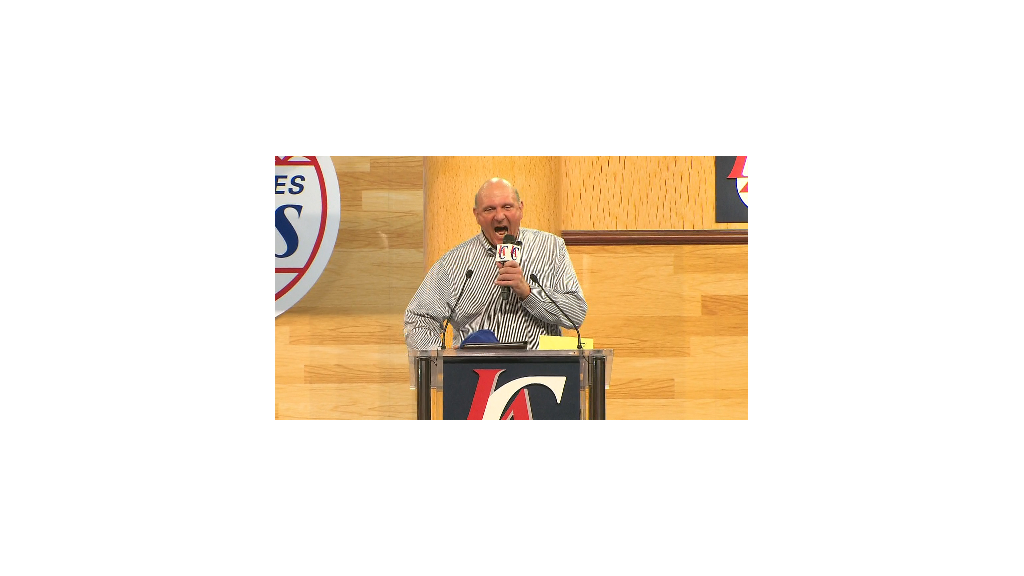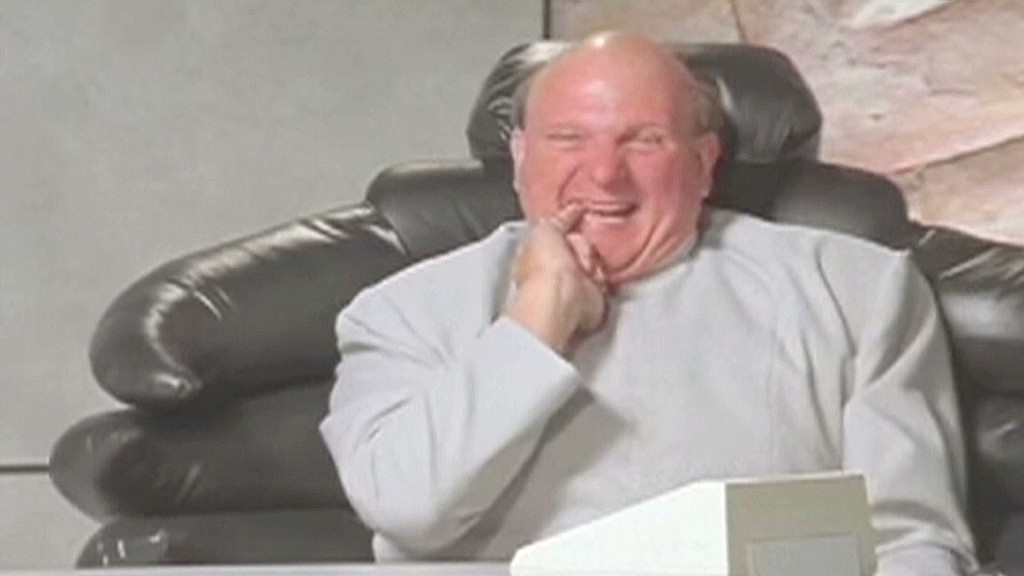
Steve Ballmer quit being Microsoft CEO last year, and now he's stepping down from the company's board of directors.
In a public letter to Satya Nadella, who replaced him as CEO, Ballmer announced he's shifting his focus to run the Los Angeles Clippers, the basketball team he just bought for $2 billion.
"I bleed Microsoft — have for 34 years and I always will," Ballmer wrote. But he cited the coming fall NBA season, civic contribution and teaching as keeping him from fully serving on the company's board.
Related: Steve Ballmer will ruin the 'Clippies'
Ballmer, who was one of the company's first 30 employees and eventually succeeded Bill Gates to run it, said he owns more Microsoft (MSFT) shares than anyone except index funds -- 333 million shares to be precise, or about 4% of the company. It's a position of influence he plans to hold "for the foreseeable future," he wrote.
Ballmer said he would use his power as a heavyweight investor to "encourage boldness by management."
In his letter to Nadella, Ballmer emphasized the importance of making "big bets" in the modern tech world, which is "mobile first" and cloud-centric. He focused on the company's potential to make money from subscription services, advertising revenue and hardware sales.
"No company in the world has the mix of software skills, cloud skills, and hardware skills we have assembled," he wrote to Nadella. "You're off to a bold and exciting start."

Nadella thanked Ballmer for his leadership and the "incredible foundation" he left behind at Microsoft.
Ballmer's 13 years were tumultuous. He took over for Gates in 2000 just before the tech bubble popped. Ballmer saw the stock price nosedive from a high of $55 to a low of $15 in 2009.
Related: Microsoft - a tale of two CEOs
During his tenure, Microsoft was slow to pick up on mobile devices and software and fell behind Apple (AAPL) and Google (GOOG). He oversaw several busts, including the buggy Windows Vista operating system, the Zune mp3 player (which lost out to the iPod) and the search engine Bing, which has yet to become a solid competitor to Google.
But he also oversaw the Windows 7 launch, largely considered a success.

